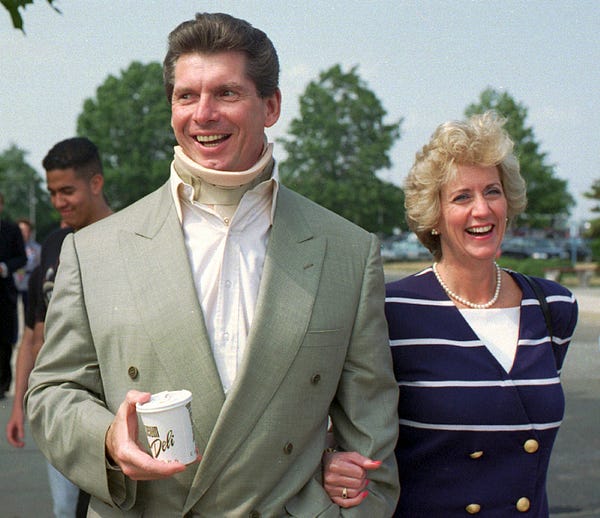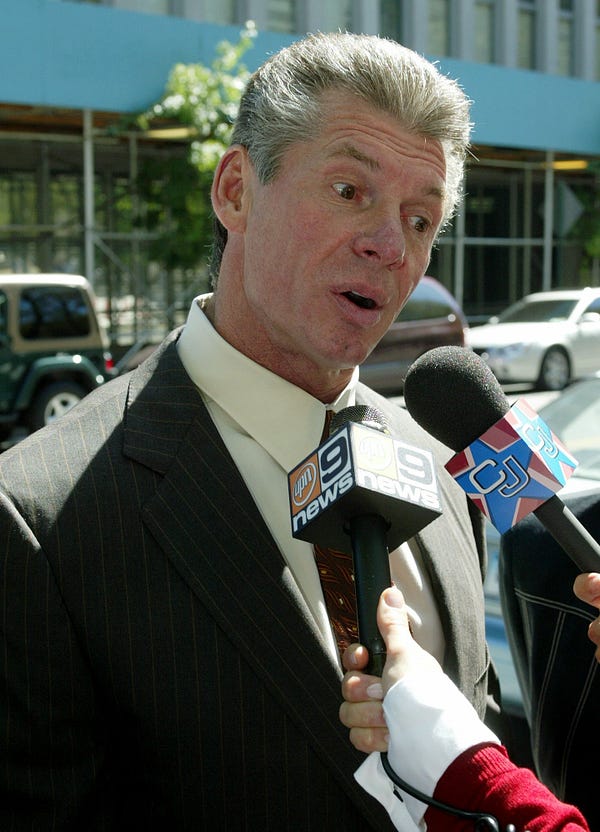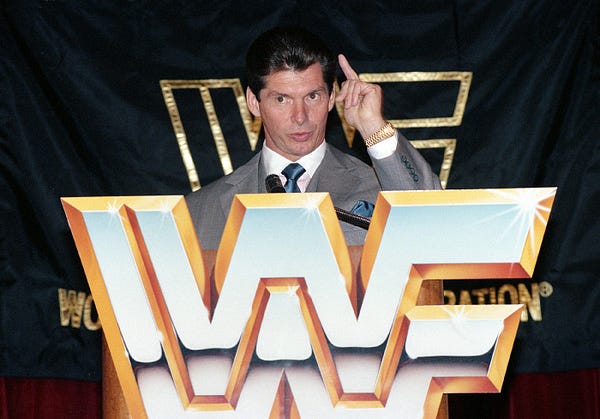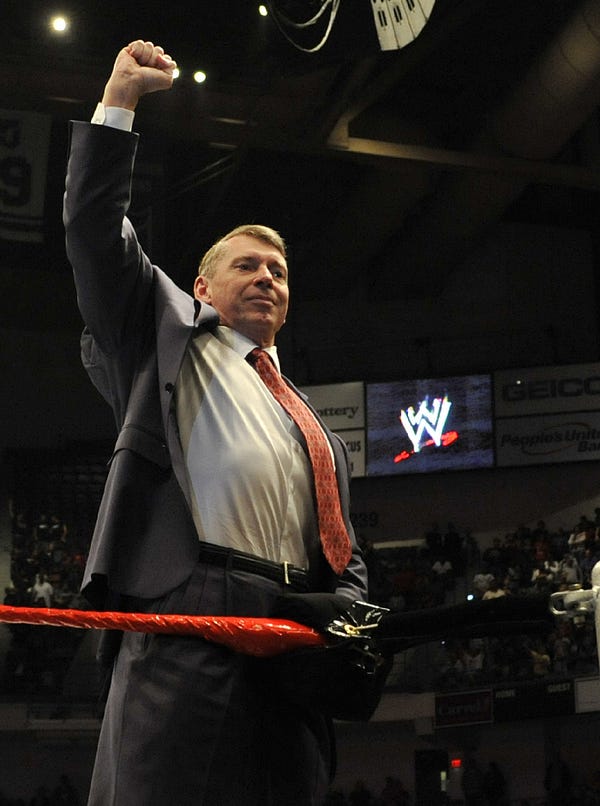Honga Ciganesta
Japanese Keyhole Porn Don
Good collection 
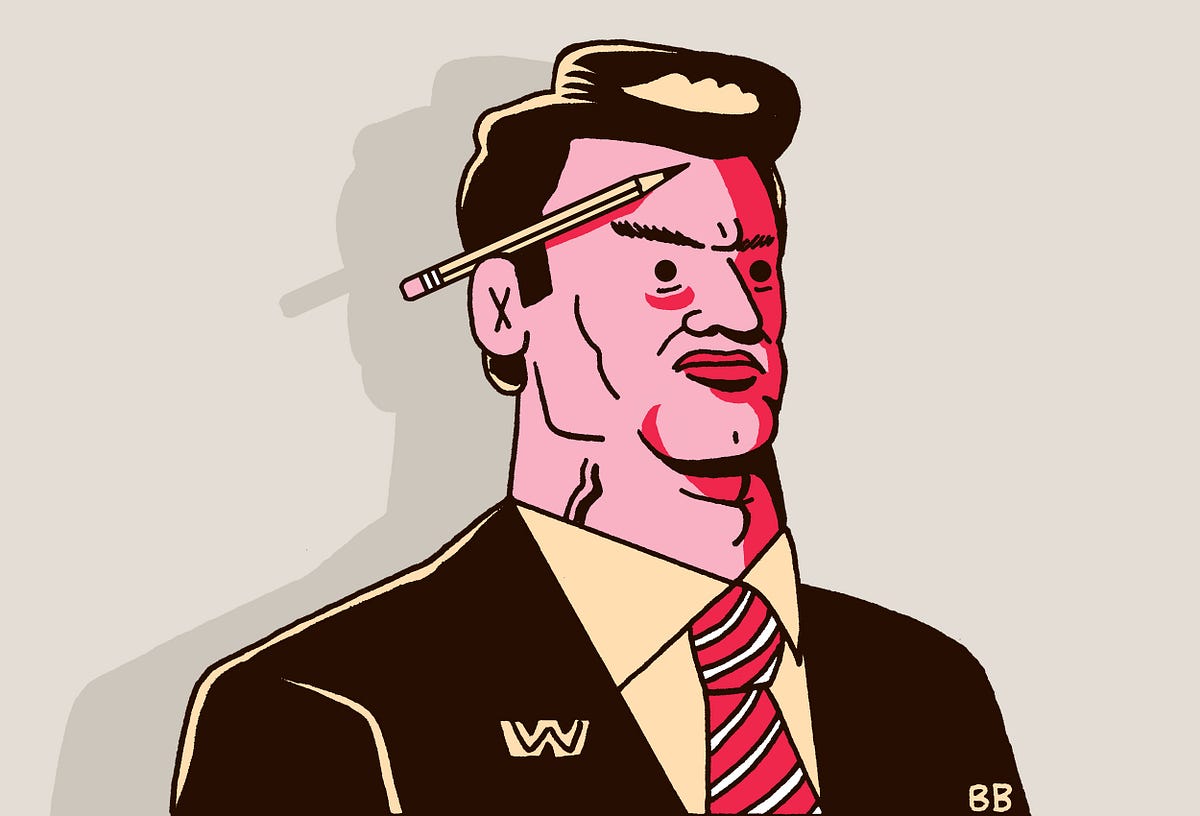
In the world of professional wrestling, no single person is as influential — or as reclusive — as WWE chairman Vince McMahon. When he gives candid interviews, they’re mostly topical or overly invested in story lines, pushes, and backstage politics. But perhaps the most interesting things about McMahon are the parts that exist off-camera, away from the ring. Over the 30-plus years since he took the reins of his father’s wrestling company — and turned it into first the World Wrestling Federation and then World Wrestling Entertainment — McMahon has given a few wide-ranging interviews, though most of them are forgotten … or offline anyway. To try to get a handle on someone as mysterious as McMahon, we retraced his statements over the years to let him tell his own story. Call it a one-man oral history — the life and times of the man who made pro wrestling what it is.
Most people think I was born with a silver spoon. I wish that were the case. [Headliners & Legends With Matt Lauer, 2001]
I basically grew up in an 8-foot-wide New Moon trailer — which was not bad; a little cramped from time to time. [The New York Times, 1998]
[A] trailer park isn’t poverty. You don’t have much privacy, but there are nice things about it. Everything is compact. And it beats some other places. Prior to that I lived in Manly, North Carolina, in a house with no indoor plumbing. That could get a little disconcerting in the wintertime. [Playboy, 2001]
You never forget the rainy, cold days when you’d have to go so badly and the only place was outside to the privy. Likewise, you never forget the real hot summer days, either. It, was quite odorific, let me tell you. [Esquire, 2005]
I grew up dirt poor. When you’re in that class, a lower economic class, everyone is, quote, “above you.” And there were a number of individuals who thought they were above me because of their economic situation. It always bugged me that people would think they were better than me. I developed a philosophy that no one’s better than me, and at the same time I’m no better than anyone else. [Muscle & Fitness, 2016]
My parents got divorced and I went with my mom, Vickie. She was in the church choir. A real performer, a female Elmer Gantry. Very striking, with an excellent voice. Lived with her and my real a$$hole of a stepfather, a man who enjoyed kicking people around. [Playboy, 2001]
I grew up in a very aggressive environment to say the least. That includes any number of individuals … beating the hell out of me only because I had a big mouth and had to say what was on my mind. [Headliners & Legends With Matt Lauer, 2001]
You would think that after being on the receiving end of numerous attacks I would wise up, but I couldn’t. I refused to. I felt I should say something, even though I knew what the result would be. [Playboy, 2001]
This one particular stepfather I did not get along with at all. [Esquire, 2005]
Leo Lupton. It’s unfortunate that he died before I could kill him. I would have enjoyed that. Not that he didn’t have some redeeming qualities. He was an athlete, great at any sport, which I admired, and I remember watching The Jackie Gleason Show with him. We used to laugh together at Jackie Gleason. [Playboy, 2001]
When you’re young and you’re facing a man, you get the shyt beat out of you. [Esquire, 2005]
First time I remember, I was 6 years old. The slightest provocation would set him off. But I lived through it. [Playboy, 2001]
I think you have to develop an attitude. From the severity that I experienced, taking numerous beatings and things of that nature, I developed a defensive philosophy that has served me very well through the years. That is: If I lived through whatever the adversarial position was, I won. No matter what happens, if I’m still breathing in and out, I won. So if you have that kind of philosophy, then failure is not a big thing. [Muscle & Fitness, 2016]
There are just no excuses for anything. I read about some guy who has excuses for his behavior because he comes from a broken home or he was beaten or was sexually abused or got into the wrong crowd or whatever the case may be — all of which have occurred in my lifetime. But those are no excuses. [New York Magazine, 1998]
This country gives you opportunity if you want to take it, so don’t blame your environment. [Playboy, 2001]
The world is a complex place. Very complex. Often you will find that the people you think are the good guys aren’t. And the people portrayed as the bad guys aren’t that bad. I’m not necessarily saying they’re good. But they’re not that bad. They’re misunderstood. [Esquire, 2005]
My dad should have been canonized. He was a wonderful man. I didn’t meet him until I was 12 years old, and I fell in love with him the moment I met him. It was like going from rags to riches when I’d go to Washington, D.C., to see him. [Esquire, 2005]
There was just an instant attraction that my dad felt and that I felt. He was just a wonderful, caring, bright man. [Headliners & Legends With Matt Lauer, 2001]
By the time I was 14, I was on my own. I was pretty much a man then. Physically, at least. In other ways I’m still becoming a man. [Playboy, 2001]
It’s frustrating for a child to know that you’re different and you don’t fit in. Maybe you’re not quite as bright and you’re made fun of. Kids will do that. I guess maybe I always resorted back to the one common denominator when I was terribly frustrated like that, and that of course would be physicality. [Headliners & Legends With Matt Lauer, 2001]
When [my son] Shane had alleged learning disabilities in high school, we put him on Ritalin. When I was in school there was no Ritalin. Attention deficit disorder hadn’t been discovered, so I was just a bad kid. [Playboy, 2001]
[I was] majoring in bad ass. [Cigar Aficionado, 1999]
I was always in fights, too. They’d pull up and there we were, me and my group of guys, going at it with the Marines…It was a challenge. Most of them were in great condition, but they didn’t know how to pick a fight. I’m not saying they were easy pickings. They got their testosterone going and they were all liquored up. Some of them were real tough. But me and my guys were street fighters. I mean, maybe you’ve been through basic training and you know how to operate a bayonet. That’s different from sticking your finger in somebody’s eye or hitting a guy in the throat. [Playboy, 2001]
[I stole] automobiles. But I always brought them back. I just borrowed them, really. There were other thefts, too, and I ran a load of moonshine in Harlowe, North Carolina, in a 1952 Ford V8. That was a badass car at the time. [Playboy, 2001]
I could go to a state-supported institution, or I could go to military school. [Headliners & Legends With Matt Lauer, 2001]
It was reform school or military school. I went to Fishburne Military School in Waynesboro, Virginia, in the Blue Ridge Mountains. Military school is expensive. My mom was still my guardian and she couldn’t afford it. So my dad was notified and he paid. [Playboy, 2001]
My dad was, in his words, able to “spring” for [Fishburne]. At 14, I had no reputation, so it was a new beginning, a great chance to start over and create a new reputation. [Cigar Aficionado, 1999]
Maybe I didn’t completely reinvent myself. I was the first cadet in the history of the school to be court-martialed. [Headliners & Legends With Matt Lauer, 2001]
I was lucky and a little crafty — I wasn’t caught for some stuff that would have meant immediate dismissal, like stealing the commandant’s car. Colonel Zinneker had an old, green, beat-up Buick, and he always left the keys in it. He also had a dog he was nuts about. I love animals, but one day I couldn’t resist giving that dog a laxative. I put the laxative in some hamburger and the dog did his business all over the commandant’s apartment, which thrilled me greatly. [Playboy, 2001]
But I at least started to change. No one really knew who I was at Fishburne. I had no badass reputation to uphold. [Playboy, 2001]
The morning of graduation, I walked up to this old colonel we had and said, “You thought I was going to fukk up finals. But now, wait and see what I’m going to do.” He recoiled, and then I said, “Just kidding.” [Cigar Aficionado,1999]
That [my dad] was able and willing to send me to that school made an impression. It was a chance to start over. [Playboy, 2001]
It’s funny how you don’t know what you’re missing if you never had it. Then when I met my dad, I fell in love with him. We got very, very close, but we both knew we could never go back. There’s a tendency to try to play catch-up, but you can’t. You missed those years. There would always be something missing between us, but there was no reason to discuss it. I was grateful for the chance to spend time with him. [Playboy, 2001]
I would see him in the summertime and on the occasional holiday. [Playboy, 2001]
He would take me to [wrestling] shows at the old Uline Arena in Washington, and I remember the crowd response and these larger-than-life individuals. The passion was just so strong, I just knew that I wanted to do that as soon as I saw it … My dad always knew that I wanted to be in the business from the first exposure. [New York Magazine, 1998]
The greater Washington metropolitan area [was] where my dad really began his start as president of Capitol Wrestling Corporation. [Wrestling 86, 1986]
Washington, D.C., that summer of ’59 … I was 14 years old, and my favorite wrestler was naturally a villainous type, Doctor Jerry Graham. [New York Magazine, 1998]
I would say that I idolized [him]…He was a persona non grata as far as the fans were concerned. And maybe that gives you some insight into my personality. [Wilmington Star-News, 1986]
We’d be at a party — my dad, Jerry and a couple of the other wrestlers. Jerry and his girlfriend would be arguing and pouring drinks over each other. It was sheer entertainment. I was learning that you can be drawn to people for their charisma, but that’s not all there is to them. [Playboy, 2001]
I’m thinking, “This is the life.” So I’d try to smoke cigars when I was a kid, and I’d cough and sputter and spew. But it looked so cool the way Jerry handled it — something to do with his hands. Cigars were a big deal — performers, the booking office, heck, you could cut the smoke with a knife. Cigar smoking was a manly thing to do — if you could afford it. [Cigar Aficionado, 1999]


In the world of professional wrestling, no single person is as influential — or as reclusive — as WWE chairman Vince McMahon. When he gives candid interviews, they’re mostly topical or overly invested in story lines, pushes, and backstage politics. But perhaps the most interesting things about McMahon are the parts that exist off-camera, away from the ring. Over the 30-plus years since he took the reins of his father’s wrestling company — and turned it into first the World Wrestling Federation and then World Wrestling Entertainment — McMahon has given a few wide-ranging interviews, though most of them are forgotten … or offline anyway. To try to get a handle on someone as mysterious as McMahon, we retraced his statements over the years to let him tell his own story. Call it a one-man oral history — the life and times of the man who made pro wrestling what it is.
Most people think I was born with a silver spoon. I wish that were the case. [Headliners & Legends With Matt Lauer, 2001]
I basically grew up in an 8-foot-wide New Moon trailer — which was not bad; a little cramped from time to time. [The New York Times, 1998]
[A] trailer park isn’t poverty. You don’t have much privacy, but there are nice things about it. Everything is compact. And it beats some other places. Prior to that I lived in Manly, North Carolina, in a house with no indoor plumbing. That could get a little disconcerting in the wintertime. [Playboy, 2001]
You never forget the rainy, cold days when you’d have to go so badly and the only place was outside to the privy. Likewise, you never forget the real hot summer days, either. It, was quite odorific, let me tell you. [Esquire, 2005]
I grew up dirt poor. When you’re in that class, a lower economic class, everyone is, quote, “above you.” And there were a number of individuals who thought they were above me because of their economic situation. It always bugged me that people would think they were better than me. I developed a philosophy that no one’s better than me, and at the same time I’m no better than anyone else. [Muscle & Fitness, 2016]
My parents got divorced and I went with my mom, Vickie. She was in the church choir. A real performer, a female Elmer Gantry. Very striking, with an excellent voice. Lived with her and my real a$$hole of a stepfather, a man who enjoyed kicking people around. [Playboy, 2001]
I grew up in a very aggressive environment to say the least. That includes any number of individuals … beating the hell out of me only because I had a big mouth and had to say what was on my mind. [Headliners & Legends With Matt Lauer, 2001]
You would think that after being on the receiving end of numerous attacks I would wise up, but I couldn’t. I refused to. I felt I should say something, even though I knew what the result would be. [Playboy, 2001]
This one particular stepfather I did not get along with at all. [Esquire, 2005]
Leo Lupton. It’s unfortunate that he died before I could kill him. I would have enjoyed that. Not that he didn’t have some redeeming qualities. He was an athlete, great at any sport, which I admired, and I remember watching The Jackie Gleason Show with him. We used to laugh together at Jackie Gleason. [Playboy, 2001]
When you’re young and you’re facing a man, you get the shyt beat out of you. [Esquire, 2005]
First time I remember, I was 6 years old. The slightest provocation would set him off. But I lived through it. [Playboy, 2001]
I think you have to develop an attitude. From the severity that I experienced, taking numerous beatings and things of that nature, I developed a defensive philosophy that has served me very well through the years. That is: If I lived through whatever the adversarial position was, I won. No matter what happens, if I’m still breathing in and out, I won. So if you have that kind of philosophy, then failure is not a big thing. [Muscle & Fitness, 2016]
There are just no excuses for anything. I read about some guy who has excuses for his behavior because he comes from a broken home or he was beaten or was sexually abused or got into the wrong crowd or whatever the case may be — all of which have occurred in my lifetime. But those are no excuses. [New York Magazine, 1998]
This country gives you opportunity if you want to take it, so don’t blame your environment. [Playboy, 2001]
The world is a complex place. Very complex. Often you will find that the people you think are the good guys aren’t. And the people portrayed as the bad guys aren’t that bad. I’m not necessarily saying they’re good. But they’re not that bad. They’re misunderstood. [Esquire, 2005]
My dad should have been canonized. He was a wonderful man. I didn’t meet him until I was 12 years old, and I fell in love with him the moment I met him. It was like going from rags to riches when I’d go to Washington, D.C., to see him. [Esquire, 2005]
There was just an instant attraction that my dad felt and that I felt. He was just a wonderful, caring, bright man. [Headliners & Legends With Matt Lauer, 2001]
By the time I was 14, I was on my own. I was pretty much a man then. Physically, at least. In other ways I’m still becoming a man. [Playboy, 2001]
It’s frustrating for a child to know that you’re different and you don’t fit in. Maybe you’re not quite as bright and you’re made fun of. Kids will do that. I guess maybe I always resorted back to the one common denominator when I was terribly frustrated like that, and that of course would be physicality. [Headliners & Legends With Matt Lauer, 2001]
When [my son] Shane had alleged learning disabilities in high school, we put him on Ritalin. When I was in school there was no Ritalin. Attention deficit disorder hadn’t been discovered, so I was just a bad kid. [Playboy, 2001]
[I was] majoring in bad ass. [Cigar Aficionado, 1999]
I was always in fights, too. They’d pull up and there we were, me and my group of guys, going at it with the Marines…It was a challenge. Most of them were in great condition, but they didn’t know how to pick a fight. I’m not saying they were easy pickings. They got their testosterone going and they were all liquored up. Some of them were real tough. But me and my guys were street fighters. I mean, maybe you’ve been through basic training and you know how to operate a bayonet. That’s different from sticking your finger in somebody’s eye or hitting a guy in the throat. [Playboy, 2001]
[I stole] automobiles. But I always brought them back. I just borrowed them, really. There were other thefts, too, and I ran a load of moonshine in Harlowe, North Carolina, in a 1952 Ford V8. That was a badass car at the time. [Playboy, 2001]
I could go to a state-supported institution, or I could go to military school. [Headliners & Legends With Matt Lauer, 2001]
It was reform school or military school. I went to Fishburne Military School in Waynesboro, Virginia, in the Blue Ridge Mountains. Military school is expensive. My mom was still my guardian and she couldn’t afford it. So my dad was notified and he paid. [Playboy, 2001]
My dad was, in his words, able to “spring” for [Fishburne]. At 14, I had no reputation, so it was a new beginning, a great chance to start over and create a new reputation. [Cigar Aficionado, 1999]
Maybe I didn’t completely reinvent myself. I was the first cadet in the history of the school to be court-martialed. [Headliners & Legends With Matt Lauer, 2001]
I was lucky and a little crafty — I wasn’t caught for some stuff that would have meant immediate dismissal, like stealing the commandant’s car. Colonel Zinneker had an old, green, beat-up Buick, and he always left the keys in it. He also had a dog he was nuts about. I love animals, but one day I couldn’t resist giving that dog a laxative. I put the laxative in some hamburger and the dog did his business all over the commandant’s apartment, which thrilled me greatly. [Playboy, 2001]
But I at least started to change. No one really knew who I was at Fishburne. I had no badass reputation to uphold. [Playboy, 2001]
The morning of graduation, I walked up to this old colonel we had and said, “You thought I was going to fukk up finals. But now, wait and see what I’m going to do.” He recoiled, and then I said, “Just kidding.” [Cigar Aficionado,1999]
That [my dad] was able and willing to send me to that school made an impression. It was a chance to start over. [Playboy, 2001]
It’s funny how you don’t know what you’re missing if you never had it. Then when I met my dad, I fell in love with him. We got very, very close, but we both knew we could never go back. There’s a tendency to try to play catch-up, but you can’t. You missed those years. There would always be something missing between us, but there was no reason to discuss it. I was grateful for the chance to spend time with him. [Playboy, 2001]
I would see him in the summertime and on the occasional holiday. [Playboy, 2001]
He would take me to [wrestling] shows at the old Uline Arena in Washington, and I remember the crowd response and these larger-than-life individuals. The passion was just so strong, I just knew that I wanted to do that as soon as I saw it … My dad always knew that I wanted to be in the business from the first exposure. [New York Magazine, 1998]
The greater Washington metropolitan area [was] where my dad really began his start as president of Capitol Wrestling Corporation. [Wrestling 86, 1986]
Washington, D.C., that summer of ’59 … I was 14 years old, and my favorite wrestler was naturally a villainous type, Doctor Jerry Graham. [New York Magazine, 1998]
I would say that I idolized [him]…He was a persona non grata as far as the fans were concerned. And maybe that gives you some insight into my personality. [Wilmington Star-News, 1986]
We’d be at a party — my dad, Jerry and a couple of the other wrestlers. Jerry and his girlfriend would be arguing and pouring drinks over each other. It was sheer entertainment. I was learning that you can be drawn to people for their charisma, but that’s not all there is to them. [Playboy, 2001]
I’m thinking, “This is the life.” So I’d try to smoke cigars when I was a kid, and I’d cough and sputter and spew. But it looked so cool the way Jerry handled it — something to do with his hands. Cigars were a big deal — performers, the booking office, heck, you could cut the smoke with a knife. Cigar smoking was a manly thing to do — if you could afford it. [Cigar Aficionado, 1999]
